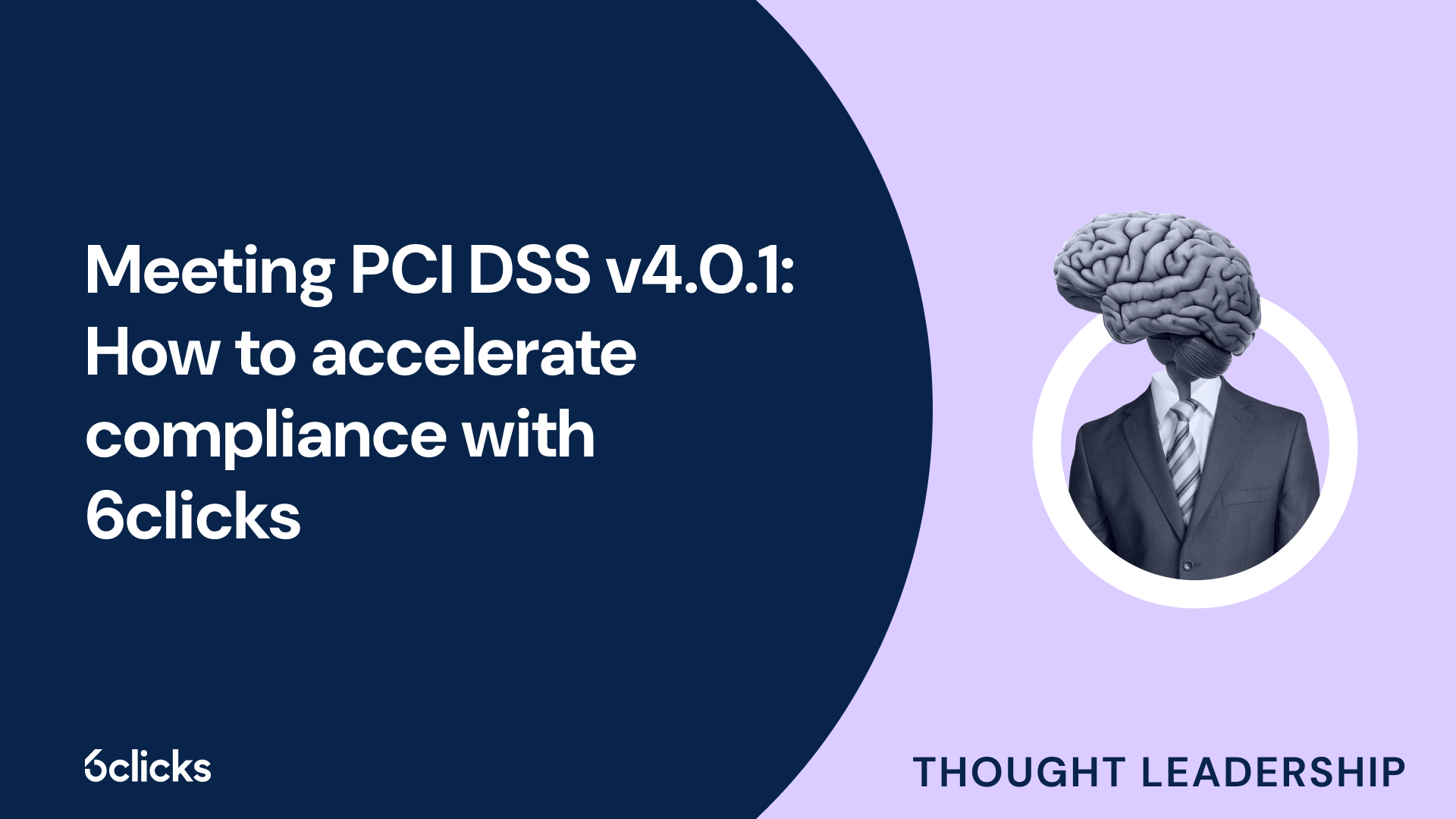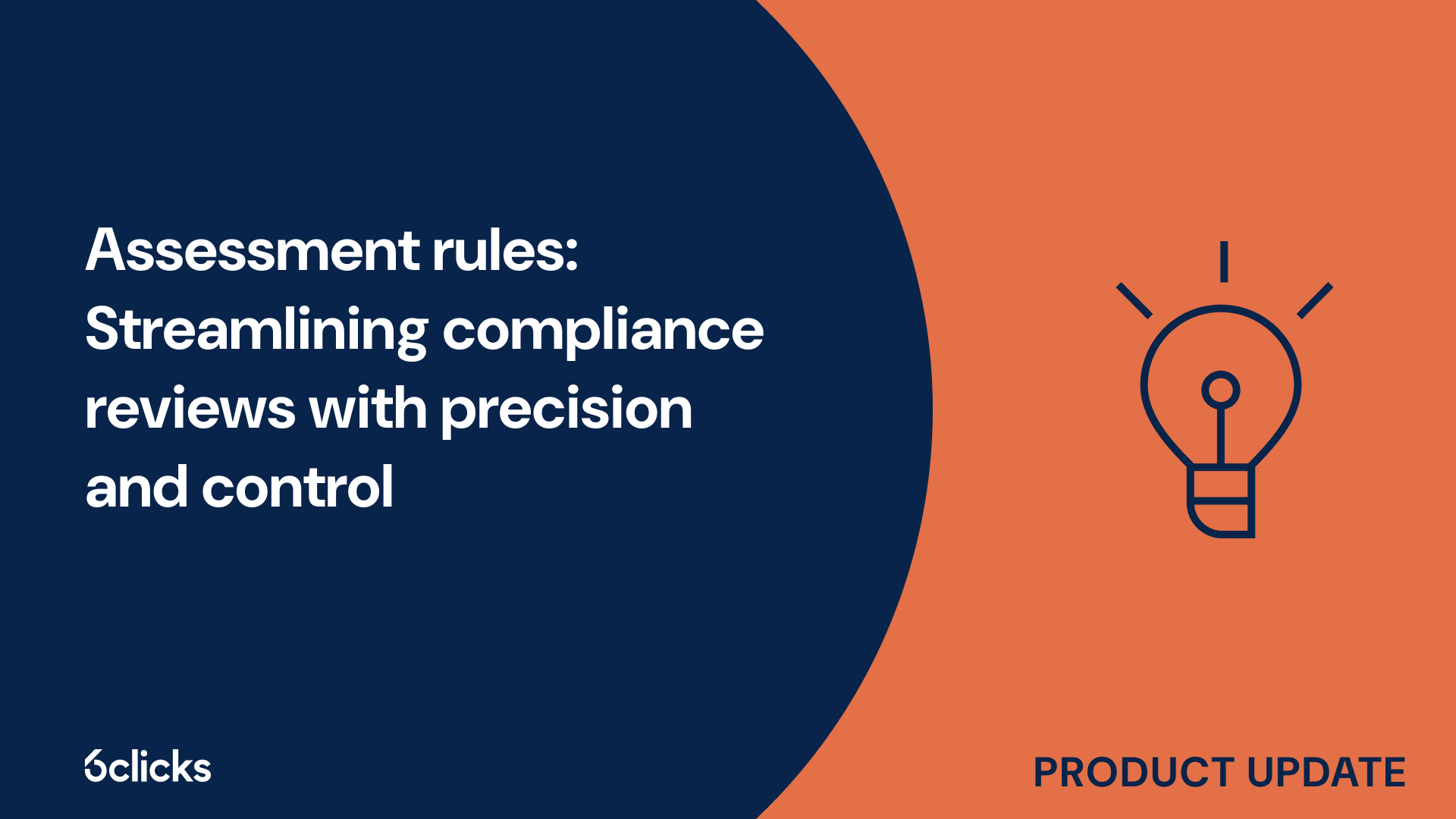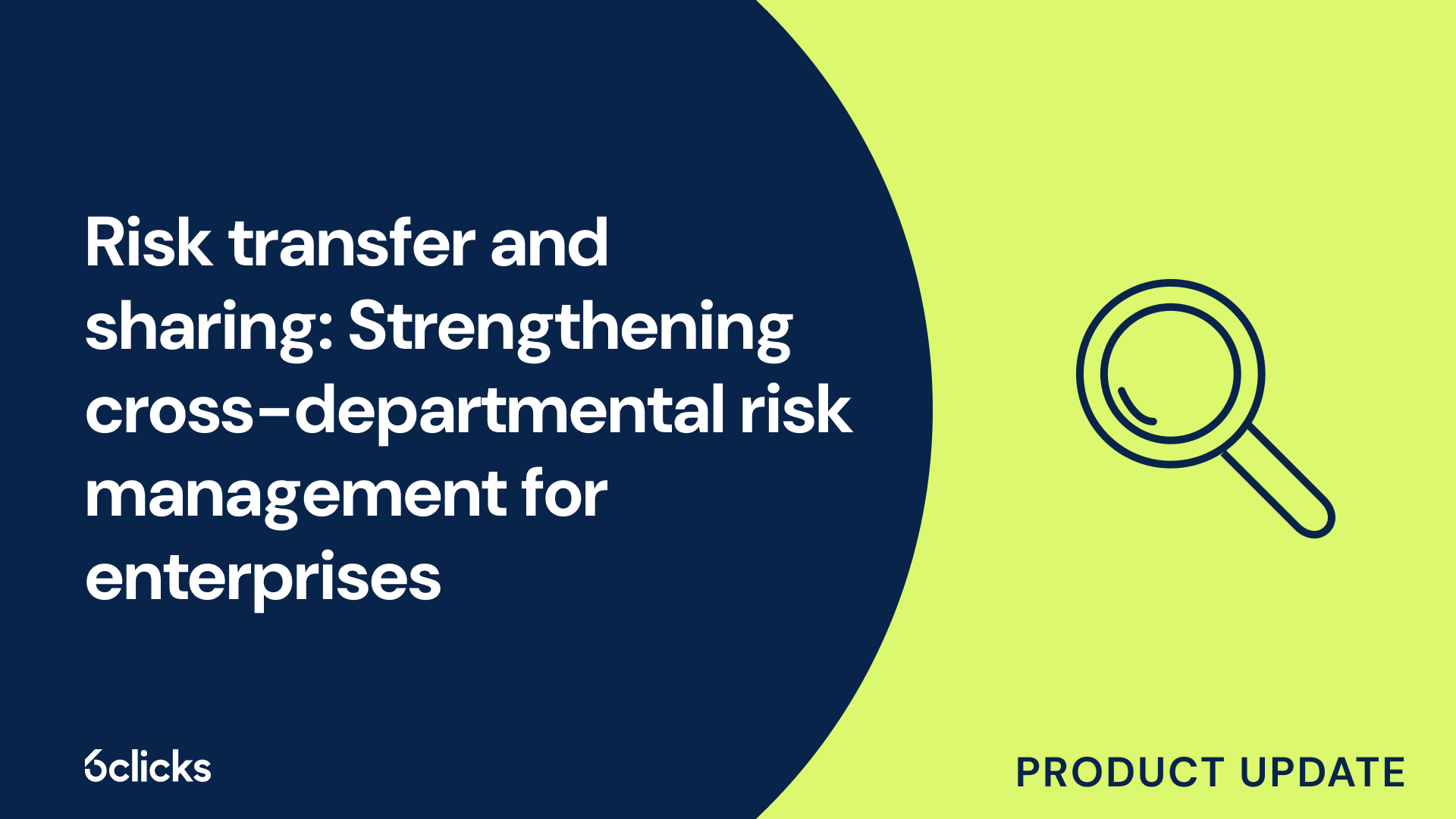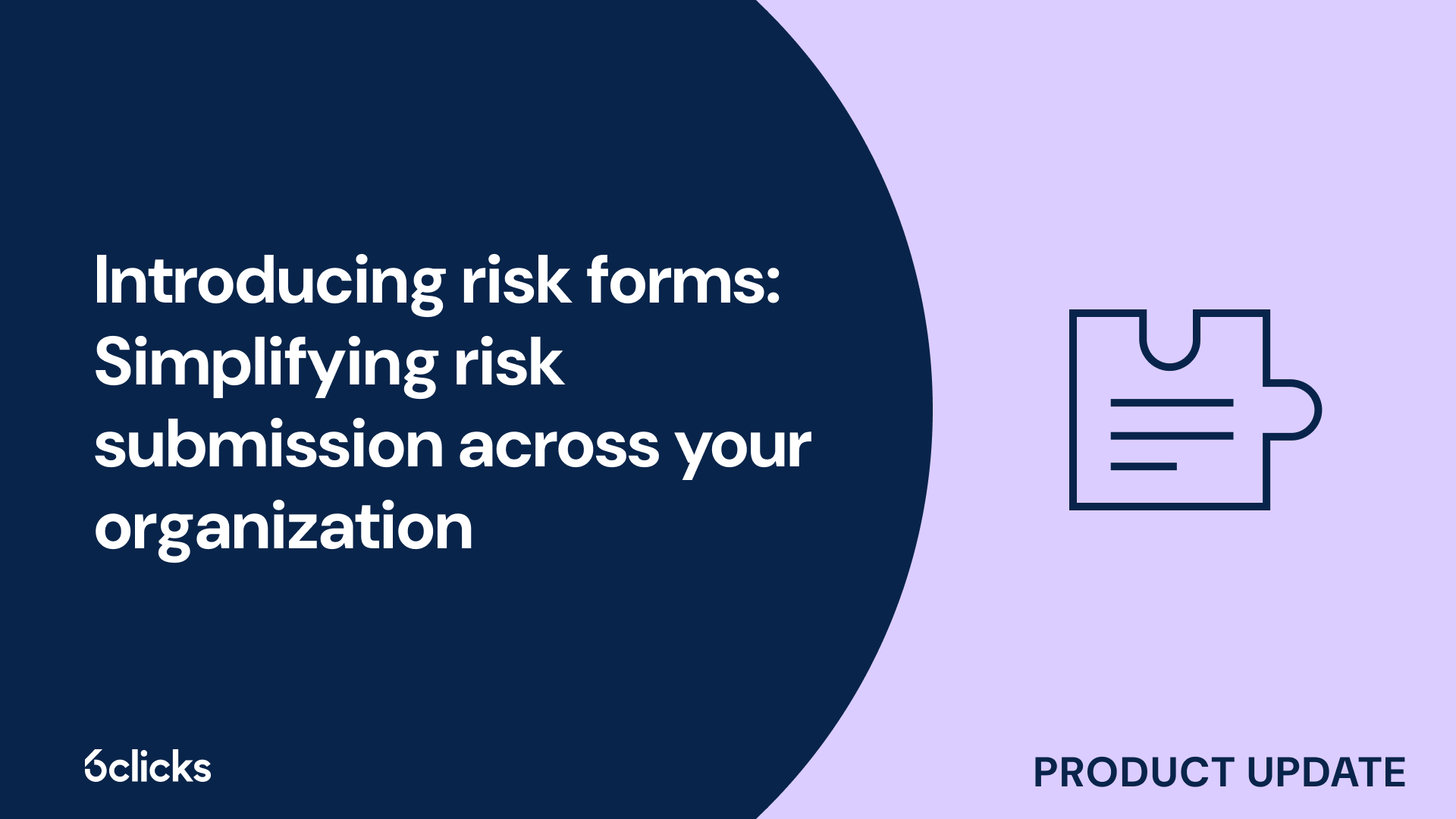The GRC buyer’s guide for 2025: Building resilience with AI-powered, federated solutions
Discover the ultimate GRC buyer's guide for 2025! Uncover how AI-powered, federated solutions transform compliance and security management for industries like government, aerospace, banking, and more. Learn about centralized control, continuous compliance, and advanced cyber GRC capabilities. Download now!
-1.png?width=200&height=249&name=Group%20193%20(1)-1.png)
The GRC buyer’s guide for 2025: Building resilience with AI-powered, federated solutions
What is GDPR?
The General Data Protection Regulation (GDPR) is a comprehensive data protection law that was implemented by the European Union (EU) on May 25, 2018. Its primary aim is to provide individuals with increased control over their personal data and to harmonize data protection regulations across all EU member states. The GDPR applies to any organization that processes personal data of EU residents, regardless of the organization's location. It sets out various rights and obligations for both data controllers (those who determine the purposes and means of processing personal data) and data processors (those who process personal data on behalf of a data controller). Failure to comply with the GDPR can result in significant fines and penalties.
Heading: Is GDPR mandatory?
Yes, the GDPR is mandatory for all organizations that process personal data of EU residents. It applies to both EU-based organizations and organizations outside the EU if they are processing the personal data of individuals in the EU. This means that even if an organization is not physically located in the EU, it still needs to comply with the GDPR if it offers goods or services to EU residents or monitors their behavior. The GDPR imposes various obligations on organizations, including the appointment of a data protection officer, implementation of technical and organizational measures to protect personal data, and the provision of clear and transparent privacy notices. Organizations must also ensure they have a lawful basis for processing personal data and obtain explicit consent when necessary. Additionally, the GDPR includes requirements for reporting personal data breaches and conducting privacy impact assessments. Non-compliance with the GDPR can lead to fines of up to €20 million or 4% of global annual turnover, whichever is higher. Therefore, it is crucial for organizations to understand and adhere to the requirements of the GDPR to ensure the protection of personal data and avoid severe consequences.
What are the benefits of GDPR compliance?
GDPR compliance offers several benefits to organizations that process personal data of EU residents. Firstly, it helps build customer trust by demonstrating a commitment to data protection and privacy. When customers know that their personal information is being handled securely and in accordance with the law, they are more likely to feel confident in sharing their data with that organization.
Secondly, GDPR compliance helps avoid penalties and potential legal issues. Non-compliance with the GDPR can result in significant fines, which can have a detrimental impact on an organization's financial stability and reputation. By adhering to the regulations and implementing appropriate data protection measures, organizations can mitigate the risk of penalties and legal actions.
Thirdly, GDPR compliance improves data management practices. The GDPR encourages organizations to implement better data governance policies, such as data minimization and retention period limitations. These practices not only help in complying with the regulation but also assist in organizing and managing data more effectively.
Moreover, GDPR compliance enhances customer relationships. By providing individuals with greater control over their personal data, organizations show respect for their privacy rights. This can lead to increased customer satisfaction and loyalty, fostering stronger long-term relationships.
Lastly, GDPR compliance enhances security measures. The regulation emphasizes the implementation of appropriate technical and organizational measures to protect personal data. By implementing robust security measures, organizations can minimize the risk of data breaches and unauthorized access, safeguarding both their customers' information and their own reputations.
Is GDPR mandatory for all companies?
Yes, GDPR is mandatory for all companies that process personal data of individuals residing in the European Union (EU). It applies to both EU-based organizations and non-EU companies that offer goods or services to EU residents or monitor their behavior.
To achieve GDPR compliance, companies must adhere to several criteria. They must have a lawful basis for processing personal data and obtain explicit consent when necessary. They must also implement measures to protect personal data, such as encryption and access controls. Organizations are required to appoint a Data Protection Officer (DPO) if they engage in large-scale processing or handle sensitive data.
Non-compliance with the GDPR can have severe consequences. Organizations can be fined up to €20 million or 4% of their global annual turnover, whichever is higher. Additionally, they may face reputational damage and loss of customer trust.
Various types of companies are subject to GDPR requirements, including public and private organizations, government agencies, and foreign companies that process EU residents' data. Regardless of size or industry, all these entities must comply with the GDPR to ensure the protection of individuals' personal data.
Under the GDPR, EU residents have rights to their data protection. These include the right to access and rectify their data, the right to erasure (or 'right to be forgotten'), and the right to restrict processing. Additionally, individuals have the right to data portability, meaning they can obtain and reuse their personal data across different services. GDPR empowers individuals with greater control over their personal information, promoting transparency and privacy rights.
Public authority and supervisory authority
In the context of the General Data Protection Regulation (GDPR), public authorities and supervisory authorities play crucial roles in ensuring the protection of individuals' personal data. Public authorities are government agencies and bodies that operate within the framework of European data protection laws. They include institutions at both the national and local levels, responsible for enforcing the GDPR and overseeing compliance with data protection regulations. On the other hand, supervisory authorities are independent bodies designated by EU member states to monitor the application of the GDPR. They provide guidance, advice, and assistance to organizations and individuals on matters concerning data protection and privacy rights. These authorities have the power to investigate complaints, impose fines, and take legal action against organizations found in breach of the GDPR. Their presence and oversight contribute to maintaining the integrity of the GDPR and ensuring that organizations comply with the necessary data protection measures.
Roles and responsibilities of the public authority
Public authorities have a critical role and vast responsibilities when it comes to GDPR compliance. As per the General Data Protection Regulation (GDPR), a public authority is defined as any government agency or body that exercises official authority and carries out specific tasks for the public interest.
Public authorities are affected by GDPR just like any other organization, but they have some additional obligations due to their nature and function. They must appoint a supervisory authority and a data protection officer to ensure compliance with the regulation. The supervisory authority oversees the application of GDPR within the public authority, while the data protection officer advises the organization and monitors its data protection practices.
In addition to appointing the necessary entities, public authorities must fulfill several specific requirements, such as conducting regular privacy impact assessments, implementing privacy by design, and maintaining comprehensive protection policies. They must also establish a lawful basis for processing personal data and ensure they have implemented appropriate technical and organizational measures to safeguard the data.
Roles and responsibilities of the supervisory authority
The supervisory authority plays a crucial role in the enforcement and regulation of the General Data Protection Regulation (GDPR). It is responsible for ensuring compliance with the regulation and protecting the rights of individuals regarding their personal data.
One of the main responsibilities of the supervisory authority is to oversee the application of GDPR within its jurisdiction. This includes conducting investigations and audits to assess the compliance of organizations with the regulation. The authority has the power to request information from organizations, carry out on-site inspections, and issue legally binding decisions.
When it comes to penalties and administrative fines for GDPR infringements, the supervisory authority has the authority to determine and impose these sanctions. It can assess the severity of the infringement, taking into account various factors such as the nature, gravity, and duration of the violation. The authority can also consider any previous infringements committed by the organization.
In addition to conducting investigations and imposing penalties, the supervisory authority can take actions when a complaint is filed against a company. It must handle complaints from individuals regarding the processing of their personal data. This includes investigating the complaint, mediating between the complainant and the organization, and ultimately deciding on the appropriate course of action based on the findings.
How does GDPR affect public authorities and supervisory authorities?
GDPR has a significant impact on both public authorities and supervisory authorities in terms of data protection. Public authorities, such as government agencies and law enforcement agencies, are subject to the same rules and obligations as any other organization under GDPR. They must comply with the core principles, lawful bases, and subject rights outlined in the regulation when processing personal data. This includes obtaining explicit consent for certain types of data processing, ensuring the security and confidentiality of personal data, and implementing privacy by design and by default.
Supervisory authorities, on the other hand, play a crucial role in enforcing GDPR and ensuring compliance. They are responsible for overseeing the application of the regulation and monitoring organizations' data protection practices. This includes conducting investigations, audits, and inspections to assess compliance. Supervisory authorities have the power to request information, issue binding decisions, and impose administrative fines in case of infringements.
Both public authorities and supervisory authorities must appoint a data protection officer (DPO) who is responsible for ensuring compliance with GDPR. They must also establish and maintain a privacy policy and implement organizational and technical measures to protect personal data.
Protection officer, protection laws, and personal data breach
A protection officer plays a pivotal role in ensuring compliance with GDPR and protecting individuals' personal data. The protection officer is responsible for monitoring an organization's data protection practices, advising on compliance requirements, and acting as a point of contact for data subjects and supervisory authorities. They play a crucial role in implementing and enforcing protection laws outlined in GDPR, which aim to safeguard the privacy and rights of individuals. In the event of a personal data breach, where unauthorized access, alteration, or loss of personal data occurs, organizations must act promptly to mitigate the impact and notify the relevant supervisory authority and affected individuals. GDPR mandates that such breaches are reported within a specific timeframe and may carry significant consequences for organizations that fail to comply. Adequate measures must be in place to prevent and address personal data breaches, underscoring the importance of protection officers and the legal framework established by protection laws.
Who is the data protection officer (DPO)?
The data protection officer (DPO) is a key role in ensuring organizations comply with the General Data Protection Regulation (GDPR). The DPO is responsible for overseeing the company's data protection strategies and ensuring that all processing activities are in line with GDPR requirements.
The DPO's responsibilities include providing advice and guidance on data protection laws and regulations, conducting privacy impact assessments, monitoring the organization's compliance with GDPR, and acting as a point of contact for supervisory authorities and individuals.
Under the GDPR, certain organizations are required to designate a DPO. This includes public authorities and organizations that engage in large-scale systematic monitoring of individuals or process large amounts of sensitive personal data. However, even though some organizations may not be required to have a DPO, it is still recommended to appoint one to ensure compliance with GDPR.
Having a DPO is beneficial as they play a crucial role in ensuring that an organization's data protection practices are comprehensive and effective. They help to promote transparency, accountability, and the protection of individuals' privacy rights while also ensuring that the organization's data processing activities align with the GDPR's core principles.
What are the rights of individuals under GDPR?
The General Data Protection Regulation (GDPR) grants individuals several rights to protect their personal data. These rights ensure that individuals have control over how their data is collected, processed, and shared. Here are eight key rights granted to individuals under GDPR:
- Right to be informed: Individuals have the right to be informed about the collection and use of their personal data. This includes being informed about the purposes of processing, the retention period, and any third parties involved.
- Right of access: Individuals have the right to access their personal data held by organizations. They can request information on how their data is being used and obtain a copy of the data.
- Right to rectification: Individuals have the right to request the correction of inaccurate or incomplete personal data. Organizations must respond to these requests without undue delay.
- Right to erasure (right to be forgotten): Individuals have the right to request the deletion of their personal data. This right can be exercised if the data is no longer necessary, if consent is withdrawn, or if the data is unlawfully processed.
- Right to restriction of processing: Individuals have the right to restrict the processing of their personal data in certain circumstances. This right can be exercised while disputes are being resolved or if the accuracy of the data is contested.
- Right to data portability: Individuals have the right to receive their personal data in a structured, commonly used, and machine-readable format. They may also request the transfer of their data to another organization.
- Right to object: Individuals have the right to object to the processing of their personal data for specific purposes, including direct marketing. Organizations must stop processing the data unless they can demonstrate compelling legitimate grounds.
- Right to avoid automated decision-making: Individuals have the right not to be subject to decisions based solely on automated processing, including profiling, if these decisions have legal or significant effects on them.
These rights are fundamental to GDPR requirements and provide individuals with greater control over their personal data. Organizations must ensure they understand and respect these rights to comply with GDPR regulations.
How does GDPR Impact personal data breaches?
GDPR has a significant impact on personal data breaches. A personal data breach is defined as a security incident where there is accidental or unlawful destruction, loss, alteration, unauthorised disclosure, or access to personal data.
Examples of incidents that can lead to data breaches include hacking, theft of devices containing personal data, accidental email attachment to the wrong recipient, or an employee intentionally accessing personal data without permission.
Under GDPR, personal data refers to any information relating to an identified or identifiable natural person. This includes not only basic personal data, such as name and address, but also more sensitive information like genetic data, biometric data, religious beliefs, political opinions, and sexual orientation.
In the event of a personal data breach, organizations are required to notify the relevant supervisory authority without undue delay and, where feasible, within 72 hours of becoming aware of the breach. If the breach is likely to result in a high risk to the rights and freedoms of individuals, organizations must also inform the affected data subjects directly. Failure to comply with these notification requirements can result in significant penalties.
Natural person, lawful basis, subject rights, and protection by design
Natural Person:
In the context of GDPR, a natural person refers to an individual who can be identified directly or indirectly through personal data. This includes any kind of information that relates to an identified or identifiable person, such as their name, address, identification number, online identifier, or factors specific to their physical, physiological, genetic, mental, economic, cultural, or social identity. GDPR aims to protect the rights and privacy of natural persons by establishing clear guidelines and requirements for the processing and protection of their personal data.
Lawful Basis:
Under GDPR, organizations must have a lawful basis for processing personal data. This means that they need to have a legitimate reason for collecting, storing, or using personal information. The lawful bases for processing can include the consent of the data subject, the necessity of processing for the performance of a contract, compliance with a legal obligation, protection of vital interests, tasks carried out in the public interest or in the exercise of official authority, and legitimate interests pursued by the data controller or a third party. Organizations must ensure that they have a valid lawful basis for each processing activity and that it is documented appropriately.
Subject Rights:
One of the key principles of GDPR is that individuals have various rights when it comes to their personal data. These subject rights empower individuals to have control over their information and how it is processed by organizations. The subject rights include the right to be informed about the processing of their data, the right to access their personal data, the right to rectify any inaccuracies, the right to erasure (also known as the right to be forgotten), the right to restrict processing, the right to data portability, the right to object to processing, and rights related to automated decision-making and profiling. Organizations must respect and facilitate the exercise of these rights by data subjects.
Protection by Design:
Protection by design, also known as privacy by design, is a fundamental concept in GDPR that emphasizes the importance of incorporating data protection and privacy measures from the very beginning of any system, service, or product development. It encourages organizations to consider privacy and data protection aspects throughout the entire lifecycle of their processes, systems, and products. This means implementing technical and organizational measures to ensure that personal data is processed securely and with privacy in mind. By implementing protection by design, organizations can minimize the risk of data breaches, misuse, or unauthorized access to personal data. It helps to build trust and confidence with data subjects and demonstrates a commitment to privacy and data protection.
What is a natural person under GDPR?
A natural person, as defined by the General Data Protection Regulation (GDPR), refers to an individual who can be directly or indirectly identified through personal data. This includes any information that relates to an identified or identifiable person, such as their name, address, identification number, or any factor specific to their physical, physiological, genetic, mental, economic, cultural, or social identity.
Under GDPR, the role of a natural person is crucial in ensuring the protection of their personal data. GDPR grants individuals various rights to maintain control over their information and how it is processed by organizations. These rights include the right to be informed about the processing of their data, the right to access their personal data, the right to rectify any inaccuracies, the right to erasure (also known as the right to be forgotten), the right to restrict processing, the right to data portability, the right to object to processing, and rights related to automated decision-making and profiling.
By recognizing the significance of individual privacy and data protection, GDPR aims to establish a framework that safeguards the rights and interests of natural persons. It sets clear guidelines and obligations for organizations to ensure that personal data is processed lawfully, transparently, and in accordance with the rights of individuals. The regulation empowers natural persons to have control over their personal data and enables them to exercise their rights, promoting a more privacy-conscious and accountable digital ecosystem.
What is a lawful basis for processing data under GDPR?
Under the General Data Protection Regulation (GDPR), organizations must have a lawful basis for processing personal data. This means that they must have a valid reason to collect and use individuals' data. There are several lawful bases outlined in the GDPR that organizations can rely on.
One of the most common lawful bases is obtaining the data subject's consent. This means that individuals give explicit and informed consent for their data to be processed for a specific purpose. Another lawful basis is the performance of a contract. In this case, processing personal data is necessary to fulfill obligations under a contract with the data subject.
Compliance with a legal obligation is another lawful basis for processing data. This means that organizations may process personal data to fulfill their legal requirements. Protection of vital interests is another lawful basis, which refers to processing data to protect someone's life or physical integrity.
Additionally, processing data can be justified if it is necessary for the performance of a task carried out in the public interest or the exercise of official authority. Finally, processing data may be based on legitimate interests pursued by the data controller or a third party, as long as these interests do not override the rights and freedoms of the data subject.
What are the subject rights under GDPR?
Under GDPR, individuals are granted several rights to protect their personal data. These subject rights empower individuals to have more control over their personal information and hold organizations accountable for how they handle and process their data.
The first right is the right to be informed. This means that individuals have the right to be aware of how their data is being collected, used, and shared by organizations.
The right of access allows individuals to request and obtain a copy of the personal data an organization holds about them. They can also request information about the purposes of the processing, the recipients of the data, and how long it will be stored.
The right to rectification gives individuals the ability to request the correction of inaccurate or incomplete personal data. If the data has been shared with third parties, organizations must inform these parties about the rectification.
The right to erasure, also known as the right to be forgotten, enables individuals to request the deletion of their personal data. There are certain circumstances in which this right may be limited, such as when the data is necessary for legal compliance or the exercise of freedom of expression.
The right to restrict processing allows individuals to limit the ways in which organizations can use their personal data. This could involve temporarily suspending the processing of their data or restricting its use for specific purposes.
The right to data portability enables individuals to obtain and transfer their personal data from one organization to another, in a structured, commonly used, and machine-readable format.
Individuals also have the right to object to the processing of their personal data for certain reasons, such as direct marketing or legitimate interests pursued by the data controller.
Finally, individuals have the right to avoid automated decision-making, including profiling, which significantly affects them. They have the right to request human intervention, express their point of view, and contest the decision.
Informing individuals about their data collection, use, and sharing practices is crucial for organizations. It promotes transparency, builds trust, and empowers individuals to exercise their subject rights effectively. By providing clear and concise information, organizations can ensure compliance with GDPR and foster a positive relationship with their customers.







